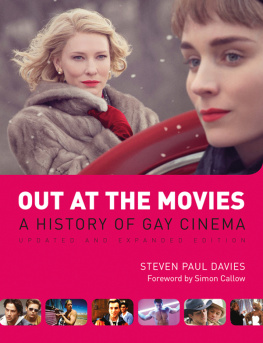Sean Desilets - Hermeneutic Humility and the Political Theology of Cinema: Blind Paul
Here you can read online Sean Desilets - Hermeneutic Humility and the Political Theology of Cinema: Blind Paul full text of the book (entire story) in english for free. Download pdf and epub, get meaning, cover and reviews about this ebook. year: 2016, publisher: Routledge, genre: Romance novel. Description of the work, (preface) as well as reviews are available. Best literature library LitArk.com created for fans of good reading and offers a wide selection of genres:
Romance novel
Science fiction
Adventure
Detective
Science
History
Home and family
Prose
Art
Politics
Computer
Non-fiction
Religion
Business
Children
Humor
Choose a favorite category and find really read worthwhile books. Enjoy immersion in the world of imagination, feel the emotions of the characters or learn something new for yourself, make an fascinating discovery.
- Book:Hermeneutic Humility and the Political Theology of Cinema: Blind Paul
- Author:
- Publisher:Routledge
- Genre:
- Year:2016
- Rating:5 / 5
- Favourites:Add to favourites
- Your mark:
Hermeneutic Humility and the Political Theology of Cinema: Blind Paul: summary, description and annotation
We offer to read an annotation, description, summary or preface (depends on what the author of the book "Hermeneutic Humility and the Political Theology of Cinema: Blind Paul" wrote himself). If you haven't found the necessary information about the book — write in the comments, we will try to find it.
This book revisits the tradition of Western religious cinema in light of scholarship on St. Pauls political theology. The books subtitle derives from the account in the Book of Acts that St. Paul was temporarily blinded in the wake of his conversion on the road to Damascus. In imitation of Paul, the films on which Sean Desiletss analysis hinges (including those of Carl-Th. Dreyer, Robert Bresson, Pier Paolo Pasolini, and Carlos Reygadas) place a god-blind mechanism, the camera, between themselves and the divine. Desilets calls the posture they adopt hermeneutic humility: hermeneutic in that it interprets the world, but humble in that it pays particulareven obsessiveattention to its own limits. Though these films may not consciously reflect Pauline theology, Desilets argues that they participate in a messianic-hermeneutic tradition that runs from Paul through St. Augustine, Blaise Pascal, Karl Barth, and Walter Benjamin, and which contributes significantly to contemporary discussions in poststructuralist literary theory, political theology, and religious studies. Desiletss insightful explication of Jean-Luc Nancys deconstruction of Christianity and Georgio Agambens recent work on religion makes a substantial contribution to film philosophy and emerging critical trends in the study of religion and film. This book puts forward a nuanced theoretical framework that will be useful for film scholars, students of contemporary political theology, and scholars interested in the intersections of religion and media.
Sean Desilets: author's other books
Who wrote Hermeneutic Humility and the Political Theology of Cinema: Blind Paul? Find out the surname, the name of the author of the book and a list of all author's works by series.









